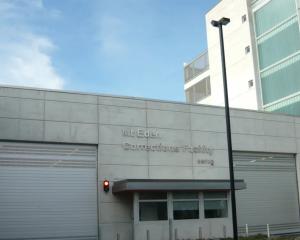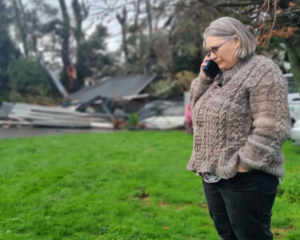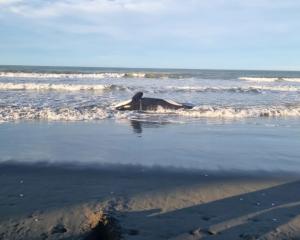An interim report by commissioner Jan Wright concluded the controversial process of hydraulic fracturing, known as "fracking", could be done safely in New Zealand if well-managed.
But the energy industry had not yet gained the trust of the public by showing it had used world's best practice, and the regulation which governed it could be too light-handed.
"During the course of this investigation I have come to a similar conclusion to the [British] Royal Society which is that fracking is safe if it is properly regulated and managed," Dr Wright said.
"However I have significant concerns about how fragmented and complicated the regulatory environment for fracking is and about how these rules are being applied."
Dr Wright would not bow to Green Party calls for a moratorium on fracking, but said she would not hesitate to impose a ban if the second half of her investigation revealed that process was too dangerous.
"Recommending a moratorium is a big thing to do and I wouldn't do it lightly. It's a business employing lots of people with livelihoods at stake here.
"But I am the environmental commissioner so the environment must be of primary concern. I've not seen anything yet that it is of high and urgent concern but that is not to say that everything has been done perfectly so far."
Fracking helps release natural gas and oil deposits that would otherwise be uneconomical or impossible to recover by pumping large volumes of mainly water and sand at high pressure through a wellbore into deeply buried gas-bearing rock.
The investigation found some instances of minor environmental damage as a result of fracking, but nothing of major concern.
The report said that if best practice was not followed, fracking could trigger earthquakes or pollute aquifers.
Dr Wright said small quakes had been caused by fracking in the United States, but these were highly infrequent and small - around 2 or 3 on the Richter scale, with one magnitude 5 quake observed in Colorado.
However, New Zealand was a seismically active part of the world and companies were discouraged from drilling wells near active faultlines.
Energy companies have proposed oil and gas exploration on the North Island's East Coast, where seismic activity was high.
A GNS Science report commissioned by the Taranaki Regional Council found that fracking activity in the region did not contribute to any of 3000 monitored earthquakes.
Dr Wright said the greater concern was chemicals used in the fracking process leaking into groundwater.
New Zealand has been taking place in New Zealand for 23 years, but was expected to dramatically increase as part of Government plans to massively expand oil and gas exploration.
Dr Wright said the safe track record in Taranaki so far was not an indication that fracking could be expanded without reviewing regulations and oversight.
The second half of her investigation would focus on what regulation could be introduced to encourage best practice was used by industry.
The report said it was difficult to make conclusions about fracking's contribution to climate change. Dr Wright said that although natural gas was less harmful than coal mining in terms of carbon output, it still had a worse impact on climate change than renewable energy.
FRACKING: INTERIM FINDINGS
Government oversight and regulation
- oversight is complex and fragmented
- regulation may be too light-handed
- a "social licence" to operate is yet to be earned
Management of environmental risks
- well sites must be chosen carefully, away from earthquake faultlines
- wells must be designed and constructed to prevent leaks
- spills and leaks must be prevented on the surface
- waste must be stored and disposed of with care
- Isaac Davison of the New Zealand Herald












